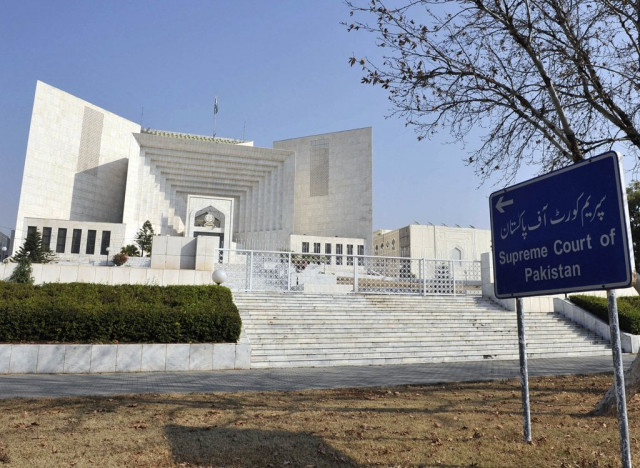SC dismisses pleas on presidential system
Apex court says it has no authority to replace country's political system; asks if matter was taken up in parliament

The Supreme Court, while upholding the registrar office’s objection on pleas seeking presidential form of governance in the country, on Monday declared them inadmissible.
A three-member bench headed by Justice Umar Ata Bandial heard the petitions filed by former lawmaker Ahmed Raza Kasuri.
During the hearing, Kasuri urged the court to direct the prime minister to announce a referendum to introduce a presidential system in the country.
Justice Bandial said that the apex court does not have the authority to replace a political system in the country, adding there were several political parties so why did the petitioner feel the need to move the court over a political issue.
Kasuri responded that if the politicians had no interest in the "welfare of the people" should he stay silent as well?
Read Only CJP can take suo motu notice, rules SC
Kasuri added he was the "only person alive who was among the authors" of the 1973 Constitution.
Justice Mansoor Ali Shah asked the petitioner whether the matter had been discussed in parliament or was it an "individual's desire" to bring a presidential system in Pakistan.
At this, Kasuri said he was not an "individual, but an institution".
Justice Mansoor said the prime minister can take up the matter in a joint sitting of parliament under
Article 46 if he wishes to do so, adding that the court has nothing to do with political issues.
He asked the petitioner not to involve the court in irrelevant matters, adding that the plea pertained to a political question not related to the court.
Justice Mansoor called for letting the court solve the problems of the people, and not confusing it by bringing such matters to it.
Justice Muneeb Akhtar asked Kasuri why didn't he oppose the parliamentary system of governance when he was a lawmaker. At this, Kasuri responded that he did oppose the clause for the parliamentary system at the time.
Read more SC verdict stands in way of presidential system
Justice Akhtar further inquired of the former lawmaker how he was counting himself among the framers of the constitution. The judge said there have been many referendums in the past and they were all self-serving.
Justice Bandial said that the presidential system always harmed Pakistan. He, however, added that the court may have entertained the plea had a political party approached it on the issue.
"If the petitioners want to start a movement [for presidential system], then they can go ahead and do that," he said, adding that the SC doesn't have the authority to abolish a system and bring another.
Moreover, Justice Akhtar stated that Pakistan was split into two parts during the presidential system introduced by military dictator Gen Ayub Khan in 1962. "On what basis should the Supreme Court order a referendum?" Justice Akhtar questioned.
“People do not have good memories of presidential systems,” he said, referring to the 1984 referendum held by Gen Ziaul Haq. "A referendum was held in 1984 through which people were asked ‘if Islam is needed then I am the president’," Justice Akhtar quipped.
"In 2002, there was a referendum [by Gen Pervez Musharraf] that I am the president," Justice Muneeb Akhtar went on to add.
He said people chose the 1973 Constitution, and the parliamentary system is enshrined in the Constitution. He asked if there was "a guarantee that the presidential system would bring prosperity".
Justice Mansoor Ali Shah asked if there was a presidential system in Islam. At this, Kasuri said he wanted democracy that was in the times of the first four caliphs of Islam.
Justice Bandial said that "everyone wanted a leadership like the caliphs but it was not possible and one needs to be realistic".



















COMMENTS
Comments are moderated and generally will be posted if they are on-topic and not abusive.
For more information, please see our Comments FAQ